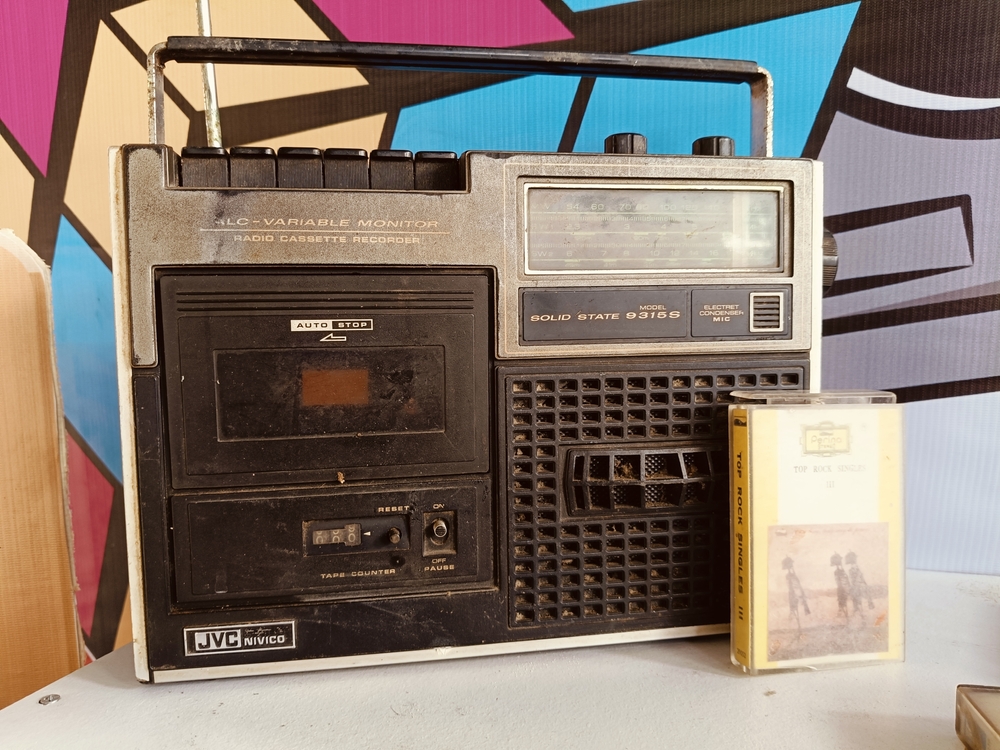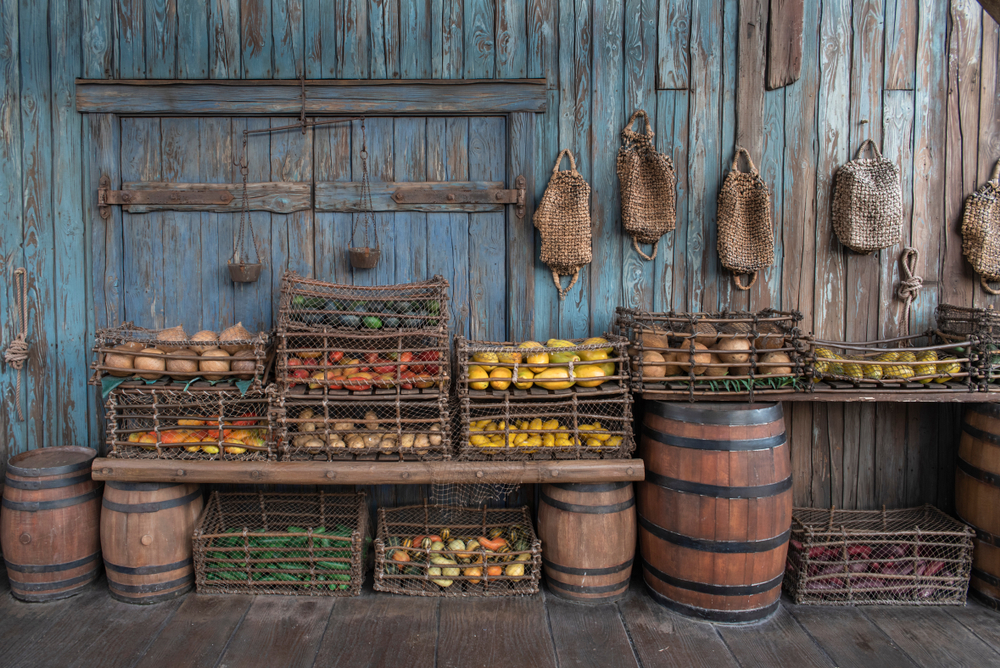Boomers have a special relationship with their clutter, and it goes far beyond just “holding onto stuff.” From ancient gadgets to outdated social customs, they keep things around that make younger generations raise an eyebrow, often with a mix of disbelief and curiosity. But this tendency isn’t just quirky—it’s deeply rooted in their psychology, shaped by the eras they’ve lived through and the values they were raised with. Every object becomes a time capsule, a tangible connection to their personal history, and letting it go feels like letting a piece of themselves disappear.
It’s also a window into how they interpret change, value, and legacy in a rapidly shifting world. Where younger people might see a drawer full of obsolete tech or a shelf lined with dusty knick-knacks, Boomers see proof of a life well-lived and hard-earned stability. These possessions act as anchors, keeping them tethered to a version of the world that feels safe, familiar, and theirs—no matter how irrelevant those items may be now. Here are 15 sharp, unexpected reasons Boomers refuse to let go of things that have lost their relevance.
1. They See Letting Go As A Loss Of Identity

For many Boomers, the things they own—like their DVD collection or fine china—are tied directly to their sense of self. These items aren’t just possessions; they’re extensions of their identity and markers of their life journey. Giving them up can feel like erasing a part of their history, as if removing the object erases the stories attached to it. It’s a deeply emotional connection that makes decluttering far more complicated than it seems.
As noted by The Conscious Organizer, many Baby Boomers see their possessions as deeply tied to their identity and life story. Letting go of objects like fine china or a DVD collection can feel like rejecting meaningful experiences and treasured memories. These aren’t just “things” to them—they’re proof of the life they’ve lived. And for Boomers, identity is something you protect, not casually toss away.
2. They Believe Something’s Value Is Measured By Longevity

If something has lasted decades, Boomers often assume it must be valuable. They see longevity as a badge of honor, whether it’s a weathered armchair or a decades-old moral code. In their eyes, age doesn’t diminish value—it enhances it. This belief turns worn-out belongings into “timeless treasures” in their minds.
This mindset makes it almost impossible for them to part with anything that has stood the test of time. Even when something is outdated or collecting dust, they see it as an artifact of endurance. For Boomers, the fact that it’s still here means it deserves to stay. “Old” doesn’t mean obsolete—it means worthy of respect.
3. They’re Wired To Hoard As A Survival Instinct

Many Boomers were raised in households shaped by scarcity, war, or economic instability. The habit of keeping things “just in case” was learned early and reinforced over decades. For them, saving things isn’t clutter—it’s preparation for the unknown. Discarding something feels like tempting fate.
Research published in the journal Sustainability explains that hoarding behaviors can stem from a fear of being unprepared, rooted in early experiences with insecurity. It’s not the object itself they’re holding onto, but the sense of safety it represents. Letting go feels like surrendering control in a world they can’t predict. Holding on is their way of staying ready for whatever comes next.
4. They Confuse Sentiment With Functionality

A broken clock that hasn’t worked in years might seem like junk to most people, but for a Boomer, it’s a cherished memory. The value isn’t in its ability to tell time—it’s in the moment they received it or the person who gave it to them. The emotional weight outweighs any practical use. To them, removing it would be like erasing a piece of their life story.
Research published in Current Opinion in Psychology confirms that older adults often form deep emotional bonds with objects because these items act as triggers for meaningful memories. This makes it harder to separate sentiment from function. What might look useless to others is sacred to them. And that sacredness makes it almost impossible to part with.
5. They See Change As A Threat

For many Boomers, new versions of familiar things feel less like an upgrade and more like an invasion. They see change as something that disrupts their stability, replacing what’s worked for years with something unfamiliar and untested. In their world, “if it isn’t broken, don’t fix it” is more than just a saying—it’s a way of life. This mindset makes them reluctant to embrace innovation, even if it’s objectively better.
A 2023 study by Myrthe Weusthof found that Boomers are the most resistant to change compared to other generations, largely due to their strong preference for stability. This resistance often results in holding onto outdated items long after they’ve lost their usefulness. To them, discarding something familiar feels like stepping into dangerous territory. It’s not just about the item—it’s about protecting the comfort it provides.
6. They Mistake Nostalgia For Relevance

Just because something was once important doesn’t mean it’s still useful today, but Boomers often blur that line. If an object, tradition, or belief shaped their younger years, they’re inclined to treat it as permanently significant. Nostalgia becomes a form of validation, a reason to hold onto the past even when it no longer serves them. In their eyes, sentimental value and present-day relevance are one and the same.
That’s why they’ll defend outdated gadgets, worn-out furniture, or antiquated customs like their lives depend on it. These items aren’t just reminders—they’re proof of an era they cherished. To discard them would be to admit that the world has moved on without them. And for Boomers, that’s a truth that’s hard to face.
7. They Prefer Simple “Old-School” Things

For Boomers, newer isn’t always better—sometimes it’s just more complicated. They often see modern solutions like mobile banking apps, streaming services, or smart home devices as unnecessarily confusing. Old-school methods, from paper statements to landline phones, feel more straightforward and trustworthy. They believe the simplicity of the past beats the complexity of the present.
According to Market Realist, Boomers’ loyalty to older technologies like cable TV or physical maps comes from valuing reliability over novelty. Even if a modern tool is more efficient, it lacks the comfort of the familiar. This isn’t just about ease of use—it’s about a sense of pride in doing things the “classic” way. For many, trading that in feels like losing a part of their independence.
8. They Can’t Admit They Don’t Understand The New Stuff

Clinging to the familiar is sometimes less about preference and more about avoiding vulnerability. Learning a new app, navigating digital tools, or adapting to updated systems requires admitting they don’t know something—and that’s not easy. Instead, they may dismiss new trends as unnecessary or overhyped. Mocking them becomes a way to mask discomfort.
The truth is, this resistance often comes from fear of being left behind in a fast-moving world. Accepting change means confronting that they’re no longer fluent in every part of it. By holding onto the old, they maintain a sense of mastery. And that mastery feels worth more than the benefits of the new.
9. They Pride Themselves On Fixing Old Things

Boomers grew up in a culture where repairing something was the default, not replacing it. From sewing a torn shirt to fixing a broken toaster, these skills were survival tools—and points of pride. Even if repairing something today costs more than buying new, they’ll still try. For them, the ability to fix is proof of competence.
Letting go of these items feels like letting go of the opportunity to prove their skills. They see themselves as resourceful, capable, and self-sufficient. A broken item isn’t junk—it’s a challenge they can conquer. And giving that up feels like losing a part of their identity.
10. They Fear Their Legacy Will Be Forgotten

For many Boomers, possessions are more than things—they’re stories, milestones, and personal history in physical form. Passing down heirlooms, photo albums, or handmade items feels like ensuring they’re remembered. Without these items, they fear their mark on the world will fade. The “stuff” becomes a safeguard against being forgotten.
This makes decluttering feel like erasing themselves from the narrative. Every object is proof they lived, loved, and contributed. To lose it is to lose that proof. And that’s a kind of loss they’re not ready to accept.
11. They Were Taught That Waste Is A Sin

Boomers were raised during or just after times of scarcity, where wasting food, clothes, or materials was unthinkable. Throwing something away wasn’t just impractical—it was morally wrong. This belief has stuck with them, long after the days of rationing have passed. Even a broken or outdated object feels worth keeping if it avoids “waste.”
This ingrained guilt makes parting with items incredibly difficult. Getting rid of them feels careless, almost shameful. They’d rather store something indefinitely than risk regretting its loss later. To them, “waste not, want not” isn’t just a saying—it’s a moral compass.
12. They Romanticize “The Good Old Days”

The past holds a certain magic for Boomers, often painted in a far rosier light than reality. They remember the music, the fashion, and the simpler pace of life, while conveniently forgetting the challenges and limitations. Items from those years feel like keys to that idealized world. Holding onto them is a way to keep that world alive.
This selective memory fuels a strong attachment to even the most impractical possessions. An outdated record player or vintage appliance isn’t just clutter—it’s a portal to “better times.” Letting go would mean acknowledging the flaws of that era. And sometimes, fantasy is easier to hold onto than truth.
13. They Are Stuck In Sentimentality

For Boomers, objects often serve as emotional bookmarks, tied to people, places, and moments they never want to forget. A box of old letters, a collection of holiday ornaments, or a stack of magazines isn’t “clutter” in their eyes—it’s a living archive. The thought of throwing them away feels like discarding the memories themselves. This makes their homes more like museums than storage spaces.
The problem is, sentimentality can pile up quickly. Soon, every drawer and shelf is filled with “just in case” memories. Decluttering becomes almost impossible when every item feels irreplaceable. And so the cycle of holding on continues.
14. They Don’t Want To Be Told What’s Obsolete

Being told “you don’t need that anymore” can trigger a strong defensive reaction in Boomers. It feels dismissive, as though their way of life is being invalidated by younger generations. This sparks a stubborn need to hold onto what they have, no matter how outdated it is. For them, it’s about control and autonomy.
Keeping these items becomes a quiet form of rebellion. It’s a way to say, “I decide what matters, not you.” Discarding them would feel like surrendering that independence. And for many, that’s not an option.
15. They Equate Letting Go With Giving Up

For some Boomers, holding onto something for decades is a point of pride—it’s proof of resilience and resourcefulness. Letting it go feels like admitting that time has moved on and they can’t keep up. It’s not just about the object—it’s about fighting the idea that they’re irrelevant. Every kept item feels like a small victory over time.
This mindset transforms clutter into a shield against aging and change. They see it as standing their ground, even if it’s impractical. Giving something up would feel like losing a battle they’ve been quietly fighting for years. And so, they hold on—because in their minds, letting go means losing.
Natasha is a seasoned lifestyle journalist and editor based in New York City. Originally from Sydney, during a stellar two-decade career, she has reported on the latest lifestyle news and trends for major media brands including Elle and Grazia.


